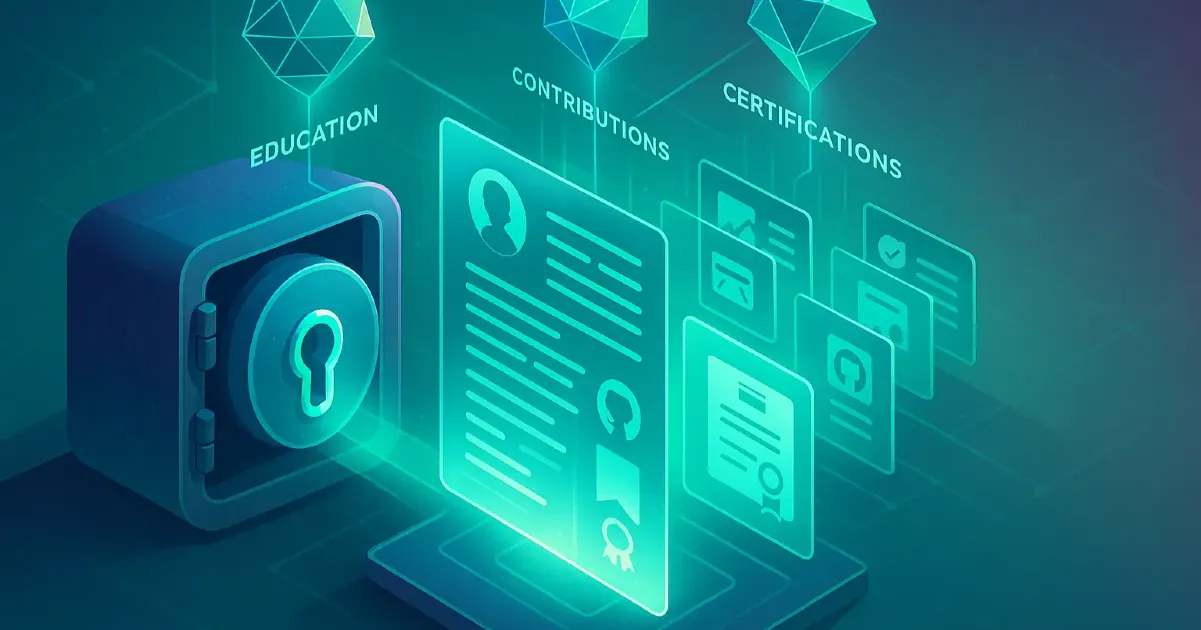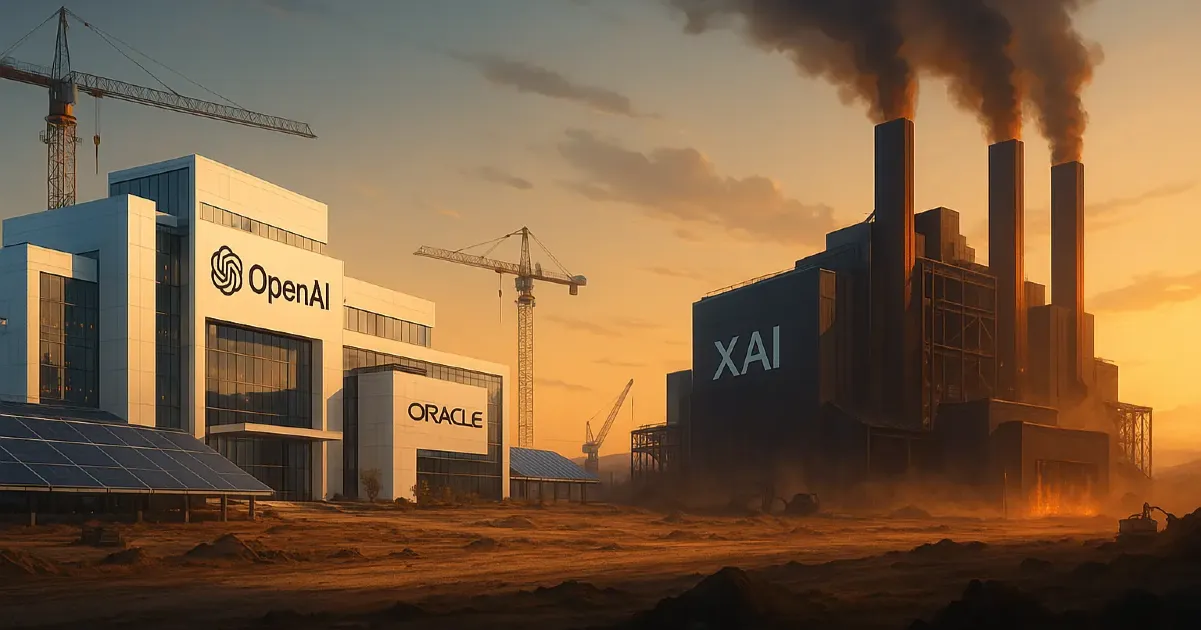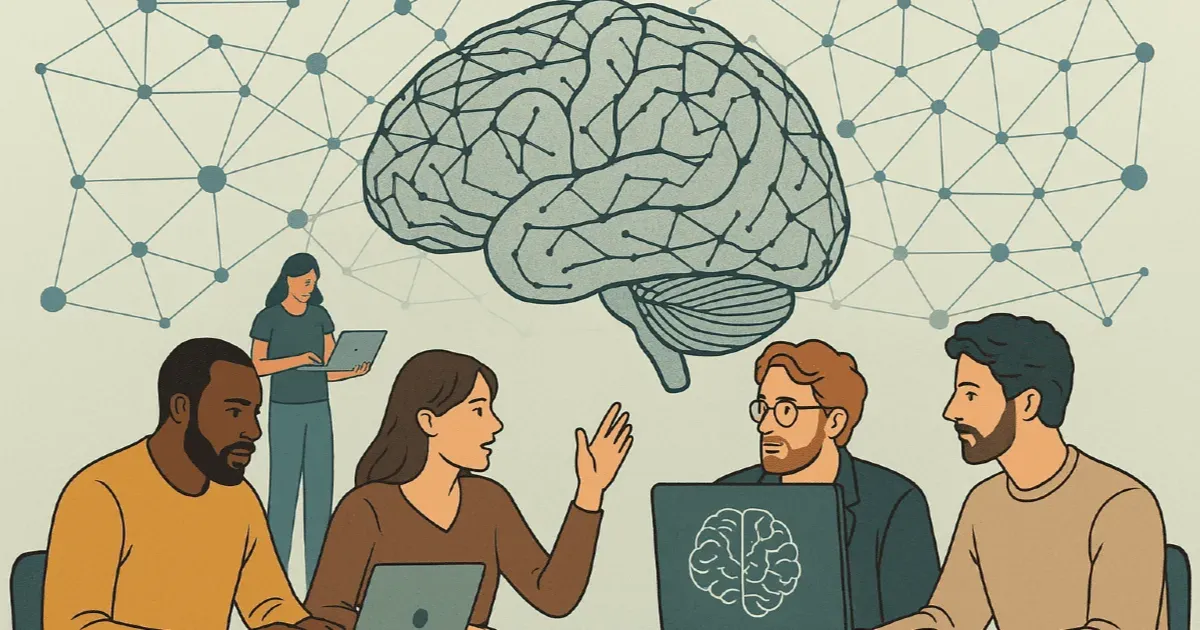Blockchain-based identity can help hiring managers spot fake AI job applicants.
You’ve heard the buzz: generative AI is upending hiring. Résumés that once took hours to craft are now polished in seconds, complete with cover letters and credentials. The problem? They might all be hollow. Today, thousands of applications flood HR inboxes, each crafted to perfection. But behind the polish, it's nearly impossible to know who's genuine and who's just riding a string of AI prompts.
That’s why blockchain identity systems are stepping into the spotlight. They offer what scraping a résumé never could: proof. Proof of real work, real education, and real on-chain reputation. With blockchain identity, resumes could evolve from static sheets into programmable, verifiable credentials not locked in a PDF, but living proof of contribution.
Why Current Hiring Signals Are Crumbling
Tradition relied on resumes, references, and degrees. But none of it told the full story. Titles get inflated. Education gets oversold. Past work that might be better off overstated leaves gaps. Now inject AI, and those gaps get polished over with syntax and smooth grammar. Hiring managers are seeing inboxes full of perfect-looking candidates who may know nothing about the actual job.
When “everyone looks qualified,” hiring becomes guesswork. Especially in fast-moving sectors like crypto, where checking backgrounds isn’t done by HR alone, it’s a sink-or-swim ecosystem, where trust must be instant, not inferred.
Verifiable Reputation: A Better Signal
Imagine instead a world where your résumé is a set of on-chain proof points. That package includes verifiable credentials from educational institutions, GitHub contributions, or token-staked achievements. A résumé, in this model, isn’t a static PDF it’s data, programmable, divisible, and verifiable without revealing everything. We can craft selective proof with zero-knowledge proofs, showing you did the work without revealing all the specifics.
This is more than verifying you’re human (though that’s still useful). It’s verification of actual achievement—proof you delivered, not just promised. A “real contributor” identity, not a polished cover letter.
Changing the Hiring Landscape One Credential at a Time
With a reputation built on proof, entire workflows shift. Hiring tools, NFTs, DAO grant mechanisms, and token sales could automatically require verifiable credentials. What used to be manual checks—did you complete that project? Earn that certification? becomes verifiable on-chain instantly.
Essentially, trust becomes composable. If your contributions, learning history, or credentials can be verified, then hiring decisions and compensation can be made with confidence, transparency, and speed.
Imagining the Blockchain Resume
Here’s a glimpse at what this might look like: you apply for a role. The system checks your credentials in real time, confirming a certification, verifying a smart-contract merger, and auditing your Git pushes without requesting full access to your private details. You demonstrate you’ve done the work, and employers see real signals, no charade. And all of it is self-sovereign; you control what you share.
For industries where pseudonymity is common, like crypto, this flips the dynamic. You get “real contributor” recognition without handing over private IDs, and employers get real assurance.
Real-World Moves Toward Verifiable Identity
This isn’t sci-fi. Projects like Humanity Protocol (valued at $1.1 billion after a $20 million round) are linking biometric identity to Web3. Others use palm scans, zero-knowledge proofs, or decentralized identifiers (DIDs) to protect privacy while proving authenticity. Builders and HR teams are already building the tools. CIOs could soon be verifying contributions via smart contracts instead of chasing references.
What HR Must Do Now
- Start asking for verifiable credentials, not just formatted resumes.
- Explore identity wallets that store work, contributions, and education.
- Use tools that can query claimed credentials without revealing everything.
- Design hiring flows around reputation, not presentation.
Conclusion: The Future of Hiring Is Verifiable
Generative AI may make everyone sound perfect, but the only signal that matters is proof. Blockchain-based identity could transform hiring from guesswork into trust. As resumes evolve into living, programmable proof of skill, hiring can become faster, fairer, and far more real.






